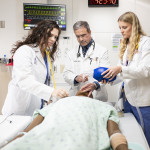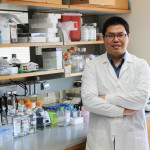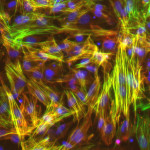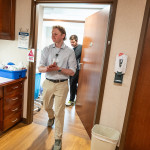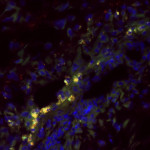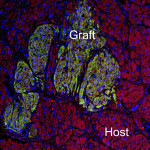Category Health & Wellness
UW–Madison medical training program improves health care for rural communities
UW–Madison and its partners are tackling the pressing problem of rural health care access by bringing medical students out of the city and into rural hospitals and clinics around the state.
The Future of Health
Researchers across the College of Letters & Science are focused on critical topics that will change the way the world looks at medicine, health policy and personal wellness.
UW professor emeritus who paved the way for at-home colon cancer testing and other screenings earns national recognition
Earlier this month, the Bayh-Dole Coalition awarded James Dahlberg the American Innovator Award, recognizing his commitment to advancing federally funded inventions from the laboratory to real-world applications.
UW–Madison researchers find hidden genetic clues upping cardiovascular disease risk
Understanding how the change in the genome increases risk for CAD is a step toward potentially preventing its damaging effects and perhaps one day developing therapeutic strategies to block the risky changes in arteries.
App under development at UW could make it easier, more affordable to ‘age in place’
Using augmented reality, UW–Madison researchers are developing an app to improve the safety and quality of life for older adults who want to age in place.
Medical students celebrate a star-studded Match Day 2025
Each year, on the third Friday in March, medical students nationwide learn where they have been placed for clinical residency training programs for most specialties. This year's Match Day shined a light on "service," with a little sprinkling of awards show-style.
For the love of a pet
The WisCARES veterinary clinic at UW–Madison provides affordable care for animal owners experiencing financial hardship or housing instability.
Dr. Nita Ahuja named dean of UW School of Medicine and Public Health
Ahuja is a cancer-care innovator whose treatment approaches and research have garnered international recognition. She’s also a proven leader and administrator with a track record for bringing multidisciplinary teams together to solve health care challenges.
UW researchers find previously unknown links between microbial bile acids and the risk of colon cancer
A team of UW–Madison scientists have uncovered that bile acids produced by the liver to help digest food may affect our risk for developing colon cancer.
New tool makes quick health, environmental monitoring possible
Vatsan Raman, who has received a provisional patent for this work, sees broad applications for the technology his lab developed, including field tests that identify pollutants in local water sources in minutes and at-home tests that track health indicators.
Research to treat placenta could improve human pregnancies
In humans, placental insufficiency restricts the growth of developing fetuses and typically leads to premature delivery and extended stays in the neonatal intensive care unit.
How might pulsed microwaves harm the brain? UW–Madison engineers lead the search for answers
UW-Madison engineers will leverage cutting-edge research techniques to investigate changes — spanning the molecular level to the animal level — that occur in the brain due to pulsed microwave exposure.
Gene therapy protects against motor neuron disease in rats
The gene therapy approach allowed the non-mutated gene to be expressed in neurons and better support the transportation of proteins, preventing disease.
UW–Madison researchers find persistent problems with AI-assisted genomic studies
Researchers are increasingly attempting to work around this problem by bridging data gaps with ever more sophisticated AI tools.
Raw milk is risky, but airborne transmission of H5N1 from cow’s milk is inefficient in mammals.
New research suggests that exposure to raw milk infected with the currently circulating virus poses a real risk of infecting humans, but that the virus may not spread very far or quickly to others.

